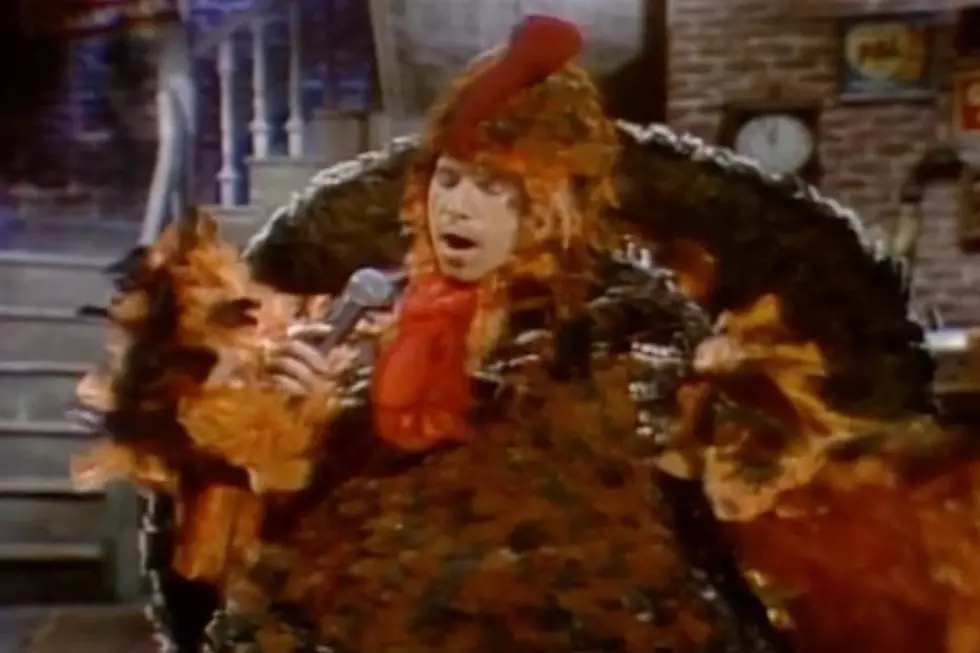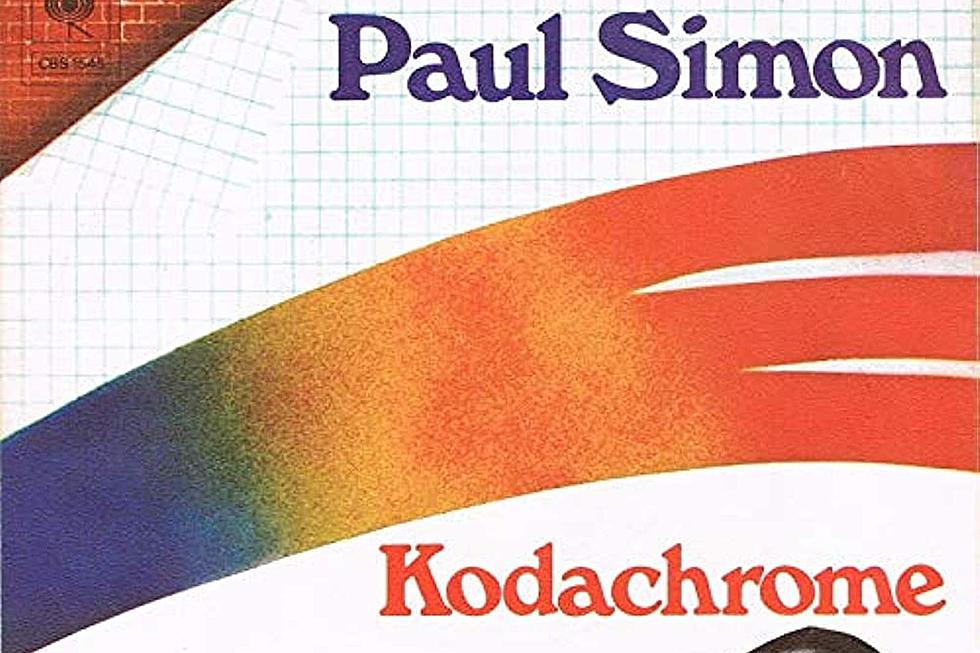
How Paul Simon Finally Found Domestic Bliss on ‘You’re the One’
"Somewhere in a burst of glory, sound becomes a song / I’m bound to tell a story, that’s where I belong."
With those words, Paul Simon ended a decade-long hiatus between studio albums. His 10th effort, You're the One, arrived Oct. 3, 2000 — roughly 10 years after its predecessor, the multi-platinum smash The Rhythm of the Saints.
Of course, Simon hadn't been completely idle during the long span between new LPs. After finishing the promotional cycle for Saints — which included a massively attended concert at New York's Central Park — he devoted years to The Capeman, a Broadway musical about Salvador Agrón, a Puerto Rican gang member sentenced to death after committing double murder as a teenager in 1959. Opening in 1998 to abysmal reviews, the show closed after 68 performances, leaving Simon bruised by one of the few abject failures of a distinguished career.
The Capeman's quick curtain came at something of a pivotal moment in Simon's recording career. After rising to fame as one of his generation's preeminent singer-songwriters, he rebounded from the early '80s disappointment of Hearts and Bones with the massive hit Graceland, which reinvented his sound by infusing it with elements of South African music. With Saints, he moved to South America, incorporating Afro-Brazilian polyrhythms. For his next record, the obvious question was where in the world he'd go next.
The answer, as it turned out, was back home: Not just to the United States, but to the guitar, which formed the bedrock for the 11 songs he composed for You're the One. Working with a large band he assembled for a 1999 tour with Bob Dylan, Simon set about trying to capture that "sound" he referenced in the first line of the opening track, "That's Where I Belong" — and although that's always an amorphous process, he had decades of experience to fall back on.
"The thing about getting older is I really know what I like," Simon told New York magazine. "And when I find it, I'm in heaven. And that's what I try to do: Make a record that is so pleasurable for people who like what I like that they can just swim in it. I really tried to do that."
Listen to Paul Simon Perform the Title Track from 'You're the One'
Although he was one of the biggest pop stars of his generation and had long since surpassed the point where he was able to stop worrying about record sales, it wasn't lost on Simon that it had been quite some time since he'd set about putting together a straight-ahead rock record. As he told MOJO, everything had changed, from the way people consumed music to how long they were willing to spend listening.
"You made things for a listener with an attention span of about 20 minutes. Now, either we got used to that because we're an album generation, or that's a natural attention span, I don't know. Anyway, it was right. And when the required attention span more than doubled for a CD, I think people stopped listening to CDs as a piece of work," he pointed out. "With You're the One, I tried to make it so it took into account what an attention span is. So, it had to do with a certain flow, and ebb of energy. I had to make an album that's so interesting on first listening that someone will listen again and fall in love. And if I don't, no one's gonna listen, because everybody's stopped listening."
Be that as it may, You're the One isn't exactly a grab-you-by-the-lapels type of album — from the languid opening notes of "That's Where I Belong," it's a fairly leisurely collection, and one that leans heavier on Simon's strengths as a lyricist than his way with a pop hook. It's the type of record that expects focus — but for listeners who took the time to lean in, it revealed itself as one of the happier records from a guy who hadn't always had the most hopeful lyrical outlook.
Telling the Los Angeles Times that You're the One's generally upbeat tone arose out of his happy home life with singer Edie Brickell and their children — as he put it, "the first time that I ever had domestic bliss" — Simon noted that, despite the long layoff between studio albums, the songs came fairly quickly once he started working on the record in earnest.
Listen to Paul Simon Perform 'Old'
"As I get older, the music for me is more and more about sound. Everything seems to start with sound. Once I get the sound right, that tells you the melody and the melody [leads you] to the words," he explained. "When I begin an album, I keep a book and I write down phrases and thoughts that might work in a song. I’ll then look through the book to see if there’s a phrase that fits with the melody in a way that tells a story. On this album, the words came so fast that most of the songs were written in a day or two. It’s like that old songwriters’ cliché: 'I didn’t write it. I was just taking dictation.' But that’s how it felt. That’s very different for me. It’s usually like a couple of months of working on the lyrics."
After a decade of pent-up anticipation for Simon's return, You're the One had a head start on the charts, but his days as a Top 10 singles act were over — even the biggest hit from Graceland, "You Can Call Me Al," rose no higher than No. 23, and none of Saints' singles made anything resembling a dent on Billboard's Hot 100. You're the One continued that cold streak on the airwaves — neither the title track nor "Old" charted, and after Simon's many years away from the spotlight, the album could have used the extra help from a song in heavy rotation. Ultimately it peaked at No. 19 and went gold, both a significant slide down from the Top Five, multi-platinum showings of Graceland and The Rhythm of the Saints.
Not that it mattered much to Simon. One of the few veteran rockers who seemed content with his elder statesman status (which, to be fair, he could readily afford), he readily accepted the possibility that the album might not reach the lofty commercial heights attained by its predecessors. Poised at the start of what turned out to be a far less sales-driven phase of his career, Simon sounded a prescient note about his chances of continuing to rack up hits — and his ongoing value as a singer/songwriter.
"Out of my generation, there's a handful of people who were big stars once and maybe now they're not going to be big stars," Simon mused in his interview with New York. "Well, what did you think was going to happen? That everything was going to stay the same? You were a big star and you're going to be a big star forever? No, nothing stays the same. And being a star is of zero importance. Get past that. You can't change what popular culture is by talking about it. You can change it by embodying something that's real, that's meaningful, that's a powerful idea that can sweep the world. And that idea can come from any age, and most of those ideas do come from people who are older."
Of course, as many fans of his frequently world-weary brand of introspective pop had long been aware, Simon was pretty much always wise beyond his years. Staring down 60 as he spoke with the Boston Globe, he joked that he's "been getting old ever since I hit 30" and proposed that perhaps rock 'n' roll really isn't the young man's game it seemed to be in the beginning. "You know, the truth of the matter is that it takes a long time to get really good. A long time," he mused. "You see that in the adjacent fields of blues and jazz – and the same will be true in rock, too, I think."
Paul Simon / Simon & Garfunkel Albums Ranked
More From Ultimate Classic Rock









